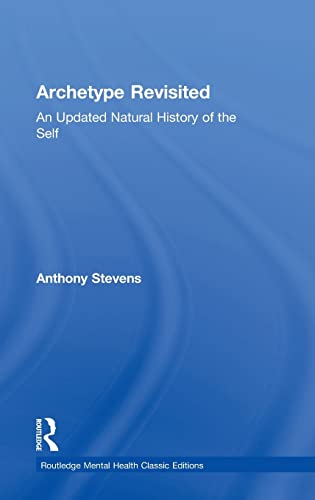

Most ebook files are in PDF format, so you can easily read them using various software such as Foxit Reader or directly on the Google Chrome browser.
Some ebook files are released by publishers in other formats such as .awz, .mobi, .epub, .fb2, etc. You may need to install specific software to read these formats on mobile/PC, such as Calibre.
Please read the tutorial at this link. https://ebooknice.com/page/post?id=faq
We offer FREE conversion to the popular formats you request; however, this may take some time. Therefore, right after payment, please email us, and we will try to provide the service as quickly as possible.
For some exceptional file formats or broken links (if any), please refrain from opening any disputes. Instead, email us first, and we will try to assist within a maximum of 6 hours.
EbookNice Team

Status:
Available5.0
41 reviewsArchetype: A Natural History of the Self,first published in 1982, was a ground-breaking book; the first to explore the connections between Jung's archetypes and evolutionary disciplines such as ethology and sociobiology, and an excellent introduction to the archetypes in theory and practical application as well. C.G. Jung's 'archetypes of the collective unconscious' have traditionally remained the property of analytical psychology, and have commonly been dismissed as 'mystical' by scientists. But Jung himself described them as biological entities, which, if they exist at all, must be amenable to empirical study. In the work of Bowlby and Lorenz, and in studies of the bilateral brain, Anthony Stevens has discovered the key to opening up this long-ignored scientific approach to the archetypes, originally envisaged by Jung. At last, in a creative leap made possible by the cross-fertilisation of several specialist disciplines, psychiatry can be integrated with psychology, with ethology and biology. The result is an immensely enriched science of human behaviour. InArchetype Revisited, Stevens considers the enormous cultural, social and intellectual changes that have taken place since the publication of the original edition, and includes: - An updated chapter on The Archetypal Masculine and Feminine, reflecting recent research findings and developments in feminist thinking; - Commentary on the intrusion of neo-Darwinian thinking into psychology and psychiatry; - Analysis of what has happened to the archetype in terms of our understanding of it and our responses to it. This Classic Edition of the book includes a new introduction by the author.